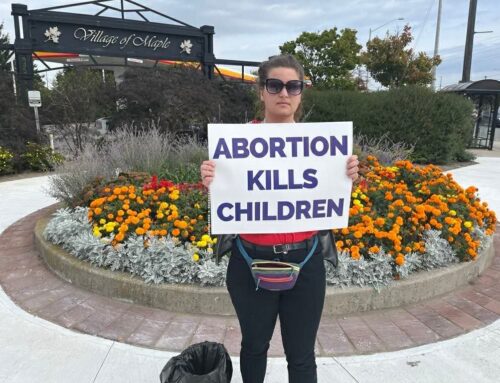On Feb. 6, the Supreme Court of Canada threw out sections of the Criminal Code prohibiting euthanasia and assisted-suicide, saying they unjustifiably infringe the Charter rights of individuals who might consider killing themselves and would want assistance at the chosen moment of death. Canada joins the ranks of Switzerland, the Netherlands, Belgium, Colombia, Luxemburg, and the American states of Oregon and Washington, in allowing assisted suicide.
In the anonymously written unanimous Carter v. Canada decision the Court ruled that prohibitions against assisted-suicide “unjustifiably infringe” a person’s right to life, liberty, and security of the person. The court ruled that a “physical-assisted death” must be made available to any “competent adult person” who “consents to the termination of life” and has a “grievous and irremediable medical condition (including an illness, disease or disability) that causes enduring suffering that is intolerable to the individual in the circumstances of his or her condition.” In doing so the Court ignored its 1993 Rodriguez decision that ruled the assisted-suicide ban was constitutional because the state’s obligation to “protect the vulnerable” outweighed the rights of individuals to self-determination.
The case stems from a challenge by the British Columbia Civil Liberties Association on behalf of Lee Carter, who in 2010 took her mother Kay to Switzerland where she was killed by lethal injection. Kay Carter, 89, suffered from the degenerative condition spinal stenosis, and her daughter said traveling with her mother opened the possibility of being charged with aiding and abetting an assisted-suicide. Later, Gloria Taylor, 64, who suffered from ALS (Lou Gehrig’s disease), was added to the suit; Taylor died in 2012. That same year, British Columbia Supreme Court Justice Lynn Smith struck down the federal ban on assisted suicide, arguing that since suicide is technically legal in Canada, the ban on assisted suicide is unconstitutional because it prevents the disabled from getting the help they may need to kill themselves. The B.C. Court of Appeals overturned that decision in 2013 noting the lower court overstepped its authority by ignoring Supreme Court precedent on assisted-suicide. The B.C. Civil Liberties Association appealed the decision to the Supreme Court which heard the case last October.
The Supreme Court ruled that section 241 which expressly forbade counseling, aiding, or abetting suicide as an indictable offense was unconstitutional because it violated the right to life (section 7 of the Charter) and is discriminatory against people with disabilities and declining health.
The Justice claimed some people who might want to kill themselves later due to deteriorating health will be forced to commit suicide prematurely because worsening health or physical ability would prevent suicide later, thus a ban on assisted suicide violated the right to life guaranteed in section 7 of the Charter.
Alex Schadenberg, executive director of the Euthanasia Prevention Coalition, told The Interim, that the Court erred in creating a “foolish concept” of permitting death in the name of the right to life.
He also said the Court seemed to base its ruling on a false choice where patients had to either suffer “irremediable pain” or commit a violent act of suicide. Schadeberg said the dichotomy ignores that most pain can be managed.
Schadenberg said the Court left the door wide open in its decision with no guidance on what limitations there will be for assisted-suicide. He also said the experience of Netherlands and Belgium illustrates that safeguards seldom protect people who are vulnerable to euthanasia. The Court called cases of people killed against their wishes or in violation of safeguard protocols mere “anecdotes.”
The Supreme Court decision of Feb. 6 does not go into effect for one year as the Court instructed Parliament to enact a law governing assisted-suicide, if they choose.
The pro-life community, disabilities groups, and religious leaders condemned the Court’s decision.
CLC, EPC call for notwithstanding clause
Campaign Life Coalition and the Euthanasia Prevention Coalition immediately called upon the government to invoke the notwithstanding clause to set aside the decision for five years to allow time for either a constitutional amendment or delay the inevitable permissive law.
Schadenberg said, “the first act of Parliament must be to use the notwithstanding clause to continue to equally protect every Canadian. Then Parliament and the provincial governments must commit to providing Canadians with the care that they require and deserve.”
Rod Taylor, leader of the Christian Heritage Party, called on “Parliament to respond to the SCC ruling by using the notwithstanding clause, by invoking the Supremacy of God which is the foundation of our legal system and to re-establish public respect for the sanctity of human life. Let not our great democracy perish by judge-assisted suicide.”
Conservative MP Maurice Vellacott (Saskatoon-Wanuskewin) also called for invoking the notwithstanding clause to give Parliament the time to properly deal with the issue. “Given all the stakeholders who will need to be consulted on this emotional and sensitive issue, and given the profound consequences for individuals, for the medical profession, and for society, it defies understanding why the Supreme Court would give Parliament only one year to respond with new legislation.”
Justin Trudeau called on the federal government to form a special committee to consider the issue in order to report back to Parliament in July, so voters can know what the Conservative government would do if they were re-elected. Trudeau stated that he supports doctor-assisted suicide after watching his father’s painful fight against pancreatic cancer when the former prime minister, also suffering from dementia at the time, refused treatment. CLC’s Hughes told The Interim he wonders, “what would Justin have done? We expect that he would have gone against his father’s expressed wishes and had him killed.”
The Conservative government has not signalled their intentions. Justice Minister Peter MacKay said the government is open to public hearings but has not provided a timeline. Any new proposed law would then be examined by the Justice Committee, but it is unlikely this could be done before the House of Commons recesses in June. Parliament does not resume before the campaign is scheduled to start for the October 19 federal election.
Gwen Landolt, vice president of Real Women of Canada, criticized the Court for ignoring the wishes of Parliament. “This same issue was raised in Parliament on nine occasions since 1993, and has been the subject of six separate votes – all of which upheld the law against assisted suicide. These decisions were made with the support of all the political parties.”
The Christian Legal Fellowship, an intervener in the Carter case, said they were “extremely disappointed that the Supreme Court has struck down the prohibition, which we believe most adequately protects against abuse, and are deeply concerned that the vulnerable in Canada will now be at greater risk of losing life without consent.”
Schadenberg told The Interim that safeguards “always slide” and cannot be counted on to protect people from unscrupulous doctors and family members who are considering expediting death. He said the only thing that can protect individuals now is the “Power of Attorney Document” – available through the EPC – which is properly written and empower good decision-makers to individuals when they are incapacitated.
Jim Hughes, national president of Campaign Life Coalition, said “giving people the legal right to kill others in whatever state of life they are in is something Canadians must never support.” Aside from the fact that safeguards do not work and are often watered down, Hughes said violation of the right to life is wrong. “This decision potentially puts people living with disabilities, the elderly and those who are terminally ill in greater risk of being abused and killed under the umbrella of ‘dying with dignity’. This is not acceptable.”
Organizations representing people with disabilities were opposed to the Court’s ruling. The Council of Canadians with Disabilities criticized the decision which it says “creates the potential for the most permissive and least restrictive criteria for assisted suicide in the world, putting persons with disabilities at serious risk.” In a press release the CCD stated, “The Court did not impose a requirement of terminal illness, as is required in the states of Washington and Oregon. The judgment permits assisted suicide on the basis of psychological suffering. This places people with serious mental and emotional disabilities at risk, as well as people who have not yet come to grips with their disability.”
Anti-euthanasia activist and lawyer Wesley Smith noted at his Human Exceptionalism blog that the Supreme Court declared that irremediable conditions include those for which patients refuse treatment. Smith said, the decision proves words don’t mean anything anymore, because according to the nine justices of the SCOC, “an irremediable condition may be one that is wholly remediable.”





